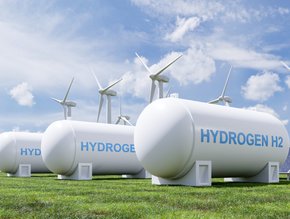Accenture: Human-Centric AI Transforms the Energy Industry

The philosophy ‘human by design’ centres around an approach to technology development where the primary focus is on enhancing human potential and experience, rather than solely optimising efficiency or automating tasks.
Data from consultants Accenture says 93% of executives in the energy industry believe making technology more human will massively expand the opportunities not only across the energy landscape but in a variety of industries. As well as this, 95% agree that, with technological advancements evolving rapidly, innovating with purpose has never been more important for organisations.
Emmanuel Viale, Managing Director at Accenture, has worked for the firm for more than 25 years and oversees the Technology Innovation organisation in Europe. Leading R&D activities with a particular focus on identifying, incubating, applying and delivering applications of innovative and emerging technologies, he has had a front-row seat to — and a hand in — how technology is driving innovation across the energy space.

“Technology is no longer just a tool to automate or optimise,” he said in a blog post.
“It enhances human potential. Human by Design means we no longer develop technology to fully replace humans. We don’t design technology that ignores the human touch, the user experience or human ingenuity. Instead, the human dimension is at the heart of the technology we build.”
How is AI adding a human touch to the energy industry?
Emmanuel’s findings put forward a case for how by adopting a human by design approach. Energy companies create new experiences for their customers and employees such as AI-based agents to help resolve fuel card queries or discovering new chemical compounds from hydrocarbons.
With AI able to play a role in the likes of exploration and production, in refineries and to ensure compliance and health and safety measures are met — to name a few — there’s no doubt it is having a positive impact on the energy space. But one point Emmanuel drives home is that virtual elements need human guidance.
“Appropriate human guidance and oversight is critical because there are risks to using AI. Gen AI suffers from hallucinations,” he added.
“The quality of a recommendation is only as good as the quality of the data, the data sources used, how the data is extracted, the knowledge graph and the recommendation engine.
“A human must be in place to assess Gen AI’s recommendations and must be appropriately trained to recognise how that recommendation was generated.”
One way in which this can be executed is through the use of digital twins, a virtual model of a physical object. This is an approach frequently used industry-wide, particularly with the simulation of hazardous working environments or places difficult to reach, like offshore wind turbines.
However, Emmanuel shares how nowadays, digital twins are as much about stimulation as they are simulation.
“They enable a more immersive training experience for staff and improve the effectiveness of health and safety before anyone sets foot in a hazardous site,” he explained. “ Not only do we remove humans from dangerous inspections, we can more accurately identify or predict issues.”
As technology advancements continue to provide results and the innovation behind it ensures it enables future excellence — some which may still not be comprehensible — it’s important not to forget the human element, and further from this, how placing humans at the centre of technology development is integral, especially as it borne from humans in the first place.
*******************
Make sure you check out the latest edition of Energy Digital Magazine and also sign up to our global conference series - Sustainability LIVE 2024.
*******************
Energy Digital is a BizClik brand.






